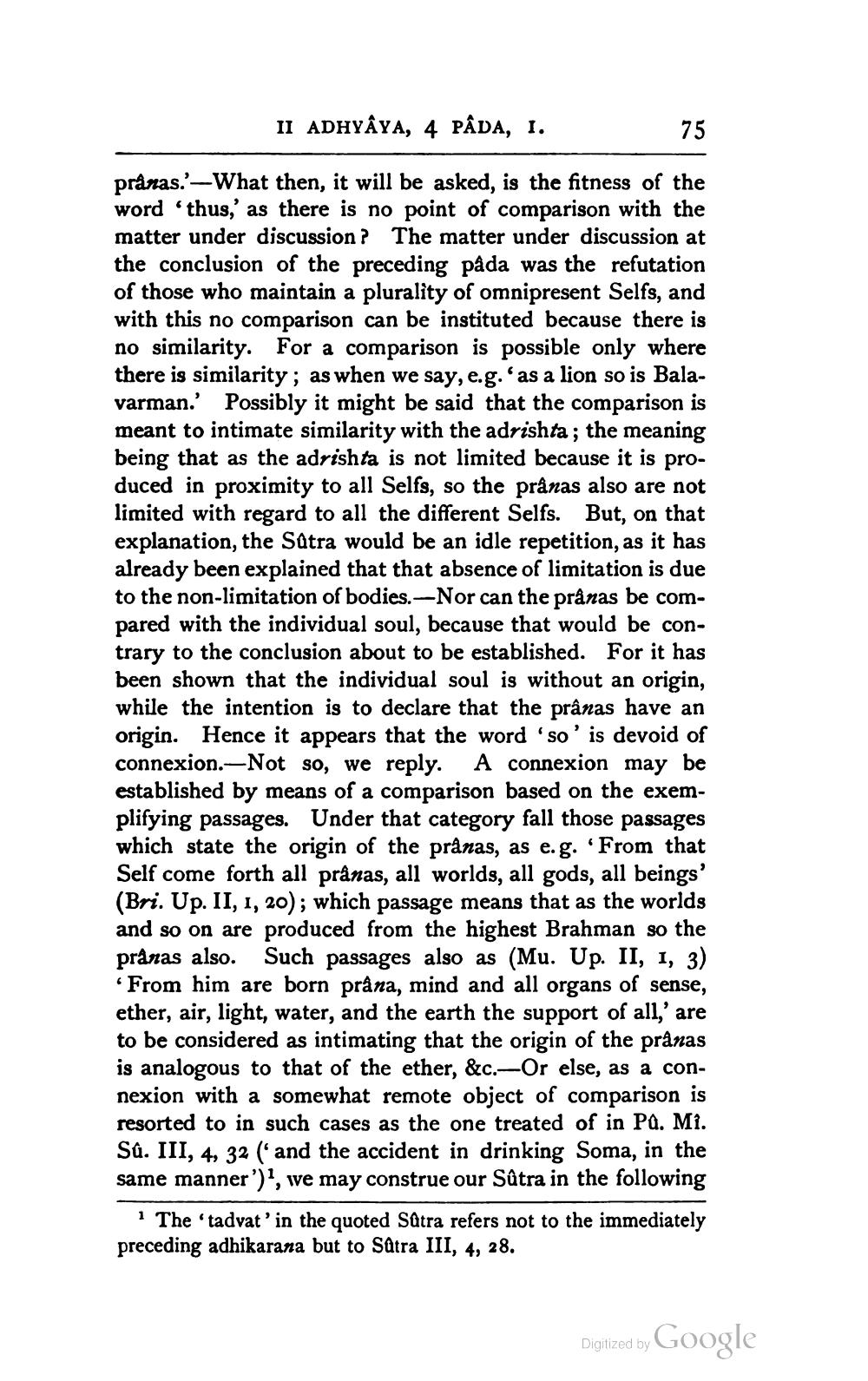________________
II ADHYAYA, 4 PÂDA, 1.
75
prånas.'—What then, it will be asked, is the fitness of the word 'thus,' as there is no point of comparison with the matter under discussion ? The matter under discussion at the conclusion of the preceding pada was the refutation of those who maintain a plurality of omnipresent Selfs, and with this no comparison can be instituted because there is no similarity. For a comparison is possible only where there is similarity; as when we say, e.g.'as a lion so is Balavarman. Possibly it might be said that the comparison is meant to intimate similarity with the adrishta; the meaning being that as the adrishta is not limited because it is produced in proximity to all Selfs, so the pränas also are not limited with regard to all the different Selfs. But, on that explanation, the Satra would be an idle repetition, as it has already been explained that that absence of limitation is due to the non-limitation of bodies.-Nor can the pränas be compared with the individual soul, because that would be contrary to the conclusion about to be established. For it has been shown that the individual soul is without an origin, while the intention is to declare that the prânas have an origin. Hence it appears that the word 'so' is devoid of connexion.—Not so, we reply. A connexion may be established by means of a comparison based on the exemplifying passages. Under that category fall those passages which state the origin of the pranas, as e.g. 'From that Self come forth all prânas, all worlds, all gods, all beings' (Bri. Up. II, 1, 20); which passage means that as the worlds and so on are produced from the highest Brahman so the pranas also. Such passages also as (Mu. Up. II, 1, 3)
From him are born prâna, mind and all organs of sense, ether, air, light, water, and the earth the support of all,' are to be considered as intimating that the origin of the pranas is analogous to that of the ether, &c.—Or else, as a connexion with a somewhat remote object of comparison is resorted to in such cases as the one treated of in Pa. Mi. Sů. III, 4, 32 (and the accident in drinking Soma, in the same manner ')', we may construe our Sûtra in the following
The 'tadvat 'in the quoted Sätra refers not to the immediately preceding adhikarana but to Sätra III, 4, 28.
Digitized by
Digilzed by Google




